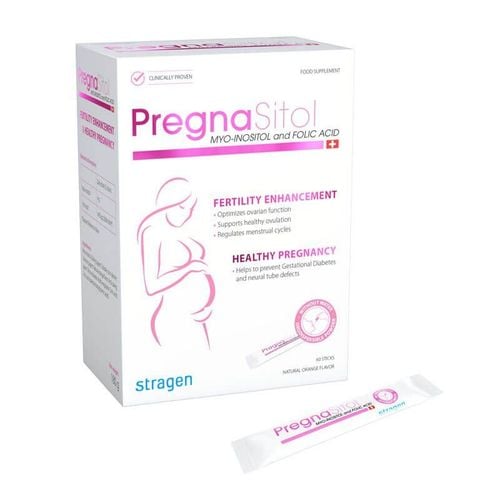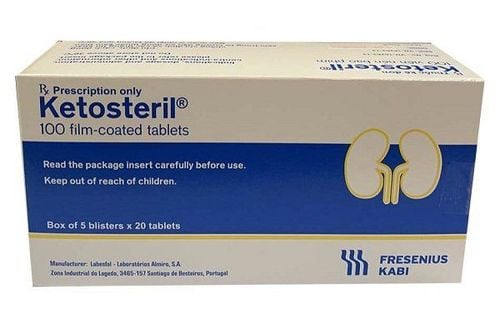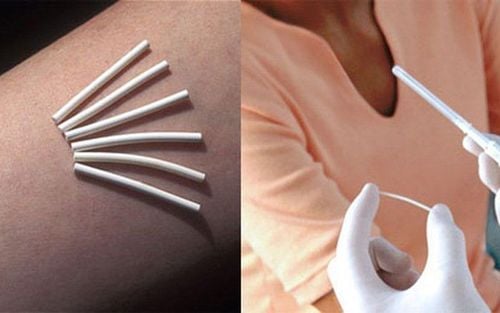This is an automatically translated article.
Many types of headaches are related to changes in the hormones estrogen and progesterone. Women typically experience menstrual migraines any time from 2 days before their period to 3 days after their period stops. However, endocrine disorders can also cause non-cyclical headaches.1. Causes of Hormonal Headaches and Menstrual Migraines
Birth control pills: Birth control pills can make migraines worse in some women or better in others. Using birth control pills every day for 3 weeks every month helps to maintain hormone levels at a regular level. When taking a placebo or no longer taking the pill, during the menstrual cycle, estrogen levels drop sharply and a woman can experience severe headaches. If you have a hormonal migraine, using a low-estrogen or progestin-only birth control pill can be effective in reducing the pain. Hormone replacement therapy: This method is often used for menopausal women who want to maintain normal hormone levels and it can also provide relief from headaches. The estrogen patch does not make headaches worse than other types of estrogen because the blood levels of the drug are low and stable.

Rối loạn nội tiết tố có thể là yếu tố gây khởi phát việc đau đầu
Menopause: when menstruation stops, women can get relief from migraines. If you're taking estrogen replacement therapy and your headaches come back worse, your doctor may recommend a dose reduction and advise you to stop taking the medication for a while or change your medication. The estrogen patch is usually the best choice. If estrogen levels in the blood are kept stable, menstrual migraines are less likely to occur. However, in some women, tension headaches can be more severe and present while the migraines are in remission. Menstrual cycle: About 60% of women with migraines are related to the menstrual migraine form. Right before your period, levels of the hormones estrogen and progesterone drop sharply. This hormonal disturbance can be a trigger for headaches. Perimenopause: In the years leading up to menopause, estrogen levels often fluctuate irregularly. Many women may experience tension headaches and migraines at the same time during this time. Pregnancy: During the first trimester of pregnancy, estrogen levels increase rapidly and then gradually decrease. It is this hormonal disturbance that causes migraines to improve or disappear after the third month of pregnancy. If the headache persists, pregnant women should not take the medicine. Migraine medications can harm an unborn baby. Over-the-counter pain relievers such as paracetamol may be safe, but consult your doctor before using them.
2. Signs of hormonal headaches and menstrual migraines

Bạn bị táo bón có thể là dấu hiệu của đau đầu do nội tiết tố xuất hiện trước khi có kinh
Migraine or menstrual migraine has the same symptoms as other types of migraine. The patient may experience:
Auras preceded by pain Sharp pain in one half of the head Nausea Vomiting Sensitivity to light and sound. Hormonal headaches can appear before menstruation and manifest with other signs such as:
Headache Fatigue Pimples Joint pain Less urination Constipation Cravings for a variety of foods, especially chocolate, salt or alcohol
3. Medications for Hormonal Headaches and Menstrual Migraines
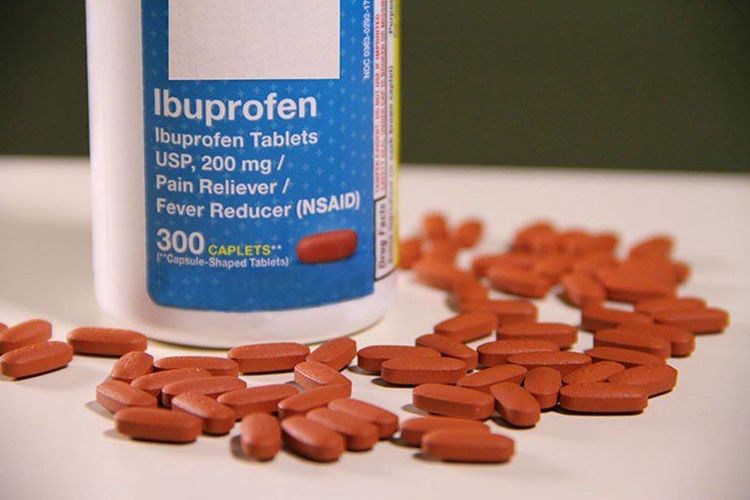
Thuốc ibuprofen được sử dụng để điều trị các chứng đau nửa đầu do kinh nguyệt
NSAIDs: Non-steroidal anti-inflammatory drugs such as ibuprofen are sometimes used to treat menstrual migraines. Patients can buy drugs themselves without a prescription or doctors will choose drugs of the same class with stronger effects. NSAIDs can reduce symptoms of dysmenorrhea in addition to the symptoms of menstrual migraine. Triptans or ditans are two other types of drugs. They work to reduce pain by inhibiting signals from the brain. The drug begins to work as soon as 2 hours. Your doctor may prescribe a combination of both NSAIDs and triptans to better control your symptoms.
If the menstrual cycle is regular, the pills should be taken a few days before menstruation and continued for the next 1 week. This can prevent migraines from continuing. Conversely, if your periods are irregular, your doctor may recommend another medication to help prevent headaches.
GammaCore: this is a kind of handheld device that activates nerves. Place the device on a position on the neck to help relieve migraine symptoms.
4. Preventive Measures for Hormonal Headaches and Menstrual Migraines
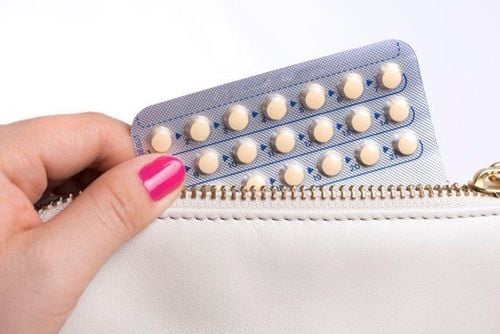
Không nên sử dụng thuốc viên tránh thai khí xuất hiện chứng đau nửa đầu do kinh nguyệt
There are many methods recommended by doctors, including:
Hormone therapy: birth control pills or estrogen patches or vaginal rings can help reduce the frequency of migraines or relieve symptoms. However, they may not work in all cases. In some people, this method can make symptoms more severe. Your doctor may instruct you to take the Pill continuously for 3 to 6 months without taking the placebo pills. This keeps a woman from getting her period and can prevent headaches from occurring. If migraines are associated with auras, using oral contraceptives containing estrogen and progesterone is not a safe choice, because of the increased risk of stroke. In addition, doctors do not recommend the use of oral contraceptives for menstrual migraines in patients with:
Smoking history Hypertension Obesity Diabetes If medications do not work, your doctor will not recommend the use of oral contraceptives. Your doctor may prescribe leuprolide acetate. The drug works to reduce estrogen levels in the body, but has some side effects. So this is usually the last option.
Migraine preventatives: if treatments don't work and you have more than 4 migraine days per month, your doctor may recommend preventive medications. Patients should use these drugs regularly to reduce the frequency and severity of the disease. Drugs that can prevent migraine include: antiepileptic drugs, antihypertensive drugs, antidepressants, CGRP inhibitors.
Menstrual migraines and hormonal headaches are common ailments, for women, they can be caused by hormonal changes. Migraine is easy to diagnose but also easy to recur, so it needs to be monitored and treated promptly.
At Vinmec International General Hospital, there are now a team of specialists with extensive experience in the fields of neurology - stroke, obstetrics and gynecology, and modern equipment including Cathlab room, DSA scanner. The full option has all the functions for neurological intervention, where many high-tech techniques can be deployed to intervene in neurological diseases - stroke.
Please dial HOTLINE for more information or register for an appointment HERE. Download MyVinmec app to make appointments faster and to manage your bookings easily.
Reference source: webmd.com
SEE MORE
Migraine jerking with prolonged pulse: What to do? Migraine during pregnancy and postpartum: What you need to know Factors that can trigger migraines





